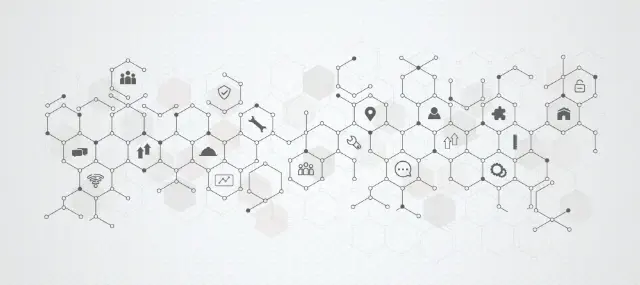Supplier Communication Automation: Revolutionizing Supply Chain Communication
In today’s fast-paced supply chain environment, effective communication with suppliers is paramount for maintaining seamless operations and ensuring timely delivery of goods and services. Supplier Communication Automation using Python, AI, and cloud-based solutions has emerged as a game-changer in this regard, addressing the challenges of manual communication and fostering greater efficiency and accuracy.
Challenges of Manual Supplier Communication:
- Inefficiency and Delays: Manual communication processes are time-consuming and prone to delays, often leading to bottlenecks in the supply chain.
- Inaccuracy and Errors: Human error is inevitable in manual processes, resulting in incorrect or incomplete information being conveyed to suppliers.
- Lack of Real-Time Visibility: Suppliers may not have real-time access to order status updates or other critical information, hindering their ability to plan and respond effectively.
Benefits of Supplier Communication Automation:
- Enhanced Efficiency: Automated notifications and self-service portals streamline communication, reducing the need for manual intervention and freeing up time for more value-added tasks.
- Improved Accuracy: Automation eliminates the risk of human error, ensuring that suppliers receive accurate and consistent information.
- Real-Time Visibility: Cloud-based solutions provide real-time access to order status, delivery schedules, and other relevant information, empowering suppliers to make informed decisions.
By leveraging the power of Python, AI, and cloud computing, Supplier Communication Automation is transforming the supply chain industry, enabling businesses to streamline communication, enhance efficiency, and foster stronger relationships with their suppliers.

Python, AI, and the Cloud: The Power Trio for Supplier Communication Automation
Unattended Bots for Streamlined Communication
Python’s versatility extends to the development of unattended bots that automate repetitive tasks in supplier communication. These bots can be programmed to:
- Send automated notifications regarding order status updates, delivery schedules, and payment reminders.
- Monitor supplier communication channels and respond to inquiries.
- Update supplier contact information and documentation.
Attended Bots for Enhanced Collaboration
Attended bots provide real-time assistance to human users, augmenting their capabilities and enhancing the overall efficiency of Supplier Communication Automation. Python’s flexibility allows for the customization of attended bots to meet specific business requirements, such as:
- Providing contextual information to users based on their current tasks.
- Automating data entry and validation processes.
- Facilitating collaboration between suppliers and internal teams.
Cloud Platforms: The Ultimate Automation Orchestrators
Cloud platforms offer a comprehensive suite of features and capabilities that far surpass traditional RPA/workflow tools orchestrators. These platforms provide:
- Scalability: Cloud-based automation solutions can be easily scaled up or down to meet changing business needs.
- Reliability: Cloud platforms offer high levels of reliability and uptime, ensuring uninterrupted automation processes.
- Integration: Cloud platforms seamlessly integrate with various applications and systems, enabling end-to-end automation across the supply chain.
AI: Enhancing Accuracy and Handling Edge Cases
AI techniques such as image recognition, natural language processing (NLP), and Generative AI (Gen AI) can significantly enhance the accuracy and efficiency of Supplier Communication Automation. These techniques can be used to:
- Extract data from supplier documents, such as invoices and purchase orders.
- Classify and respond to supplier inquiries based on their content.
- Generate automated responses and recommendations based on historical data.
By leveraging the combined power of Python, AI, and the cloud, businesses can automate supplier communication processes, streamline operations, and unlock new levels of efficiency and accuracy in their supply chains.

Building the Supplier Communication Automation with Python and the Cloud
Sub-Processes and Automation Steps
The Supplier Communication Automation process can be broken down into the following sub-processes:
1. Order Status Notifications:
- Automate the sending of order status notifications to suppliers via email or messaging platforms.
- Use Python to extract order status information from the procurement system.
- Schedule notifications to be sent at regular intervals or based on specific triggers.
2. Delivery Schedule Updates:
- Automate the sending of delivery schedule updates to suppliers.
- Integrate with shipping carriers to obtain real-time delivery information.
- Use Python to format and send updates to suppliers.
3. Payment Reminders:
- Automate the sending of payment reminders to suppliers.
- Track invoice due dates and generate reminders based on predefined rules.
- Use Python to send reminders via email or messaging platforms.
4. Self-Service Portals and Chatbots:
- Develop self-service portals or chatbots to allow suppliers to inquire about order statuses, update contact information, or submit documentation.
- Use Python to build a user interface and connect to the procurement system.
- Train chatbots to understand and respond to supplier inquiries.
Data Security and Compliance
Data security and compliance are paramount in Supplier Communication Automation. Python and cloud platforms offer robust security features to protect sensitive data, such as:
- Encryption of data in transit and at rest.
- Role-based access controls to limit access to authorized users.
- Audit trails to track user activity and ensure compliance.
Advantages of Python over No-Code RPA/Workflow Tools
While no-code RPA/workflow tools offer ease of use, they often lack the flexibility and customization capabilities of Python. Python provides:
- Greater control over automation logic.
- Ability to integrate with a wider range of systems and applications.
- Faster execution times for complex automation tasks.
Algorythum’s Approach
Algorythum takes a different approach to Supplier Communication Automation due to client dissatisfaction with the performance of off-the-shelf automation platforms. Python-based solutions offer:
- Tailor-made Automation: Custom-built solutions that meet specific business requirements.
- Scalability: Ability to handle large volumes of supplier communication without performance degradation.
- Cost-effectiveness: Lower long-term costs compared to proprietary RPA/workflow tools.

The Future of Supplier Communication Automation
The possibilities for extending Supplier Communication Automation using future technologies are endless. Here are a few potential enhancements:
- Blockchain Integration: Blockchain technology can be used to create a secure and transparent record of supplier communication, enhancing trust and collaboration.
- Predictive Analytics: Machine learning algorithms can be applied to historical communication data to identify patterns and predict future supplier behavior, enabling proactive communication and risk mitigation.
- Augmented Reality (AR): AR applications can provide suppliers with real-time visual instructions and support during product assembly or maintenance tasks.
Subscribe to Our Newsletter
Stay up-to-date on the latest trends and advancements in Supplier Communication Automation by subscribing to our newsletter.
Contact Us for a Free Feasibility and Cost Estimate
Let our team of experts help you assess your automation needs and provide a free feasibility and cost estimate for a custom Supplier Communication Automation solution tailored to your business.

Algorythum – Your Partner in Automations and Beyond
At Algorythum, we specialize in crafting custom RPA solutions with Python, specifically tailored to your industry. We break free from the limitations of off-the-shelf tools, offering:
- A team of Automation & DevSecOps Experts: Deeply experienced in building scalable and efficient automation solutions for various businesses in all industries.
- Reduced Automation Maintenance Costs: Our code is clear, maintainable, and minimizes future upkeep expenses (up to 90% reduction compared to platforms).
- Future-Proof Solutions: You own the code, ensuring flexibility and adaptability as your processes and regulations evolve.









